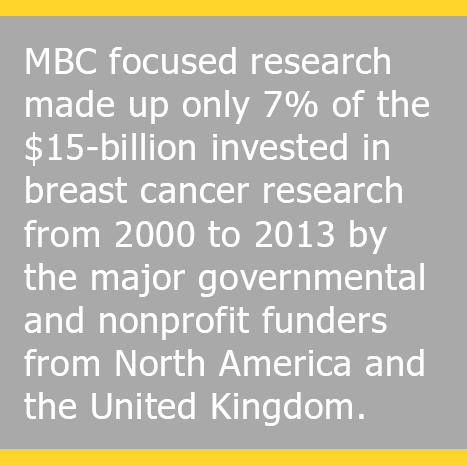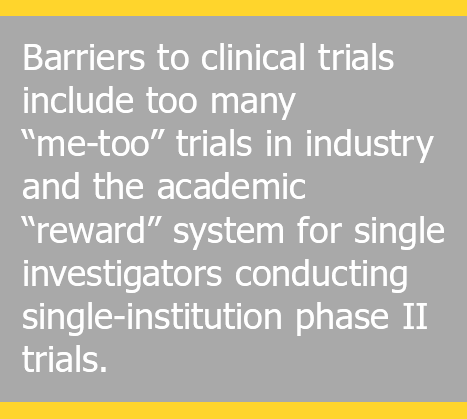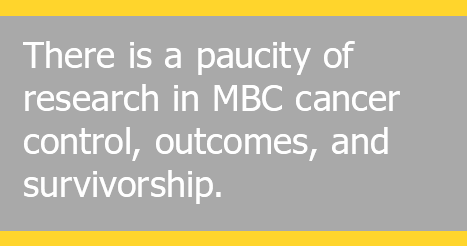MBC Scientific Research
More funds need to be directed to MBC research. MBC-focused research made up only 7% of the $15-billion invested in breast cancer research from 2000 to 2013 by government and nonprofit funders in North America and the United Kingdom. The field of MBC research is relatively small and specific scientific areas are understudied.
- Metastatic breast cancer research grants are focused on the metastasis steps of invasion and metastatic colonization, with far fewer studying intravasation and circulation, arrest and extravasation, or metabolic deregulation. Why this gap exist in funding and research focused on these areas of the biology of metastasis need further exploration.
- The distribution of funding across stages of metastatic breast cancer research (basic, translational, clinical, and cancer control) has not changed over the past decade, with most funding going to support basic research. There is a paucity of research in metastatic breast cancer cancer control, outcomes, and survivorship.
- Research on mechanisms of the disease in cell lines and animal models is usually focused on tissue taken from early stage, primary breast cancer, and not metastatic tumors. In addition, clinical trial endpoints such as tumor shrinkage may not have relevance to tumor spread or metastasis.
- More research is needed to to understand all the steps of metastasis to develop new treatments for the multiple types of metastatic breast cancer and to understand how best to improve the quality and duration of the lives of women and men in whom breast cancer becomes metastatic.
- Barriers to clinical trials include too many “me-too” trials in industry and the academic “reward” system for single investigators conducting single-institution phase II trials. To accelerate metastatic breast cancer research, these barriers must be broken down by the conduct of multi-institution, multi-investigator trials





